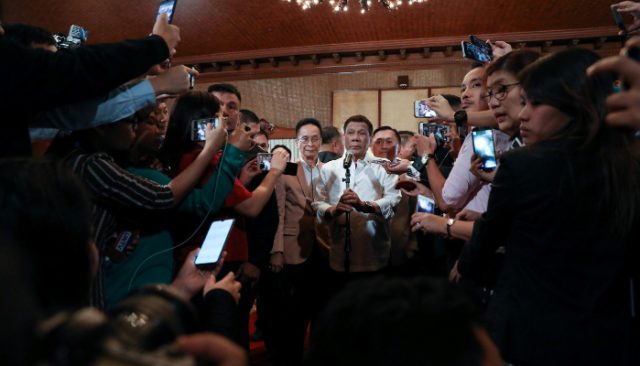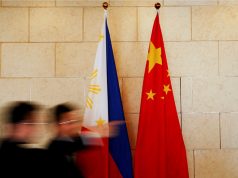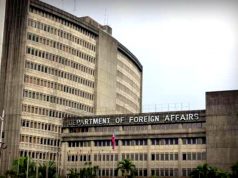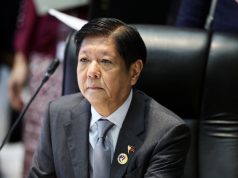
President Rodrigo Duterte’s remarks against the 1987 Constitution triggered conversations anew on whether he violated the law because of it or people took it out of context.
Duterte allegedly likened the Constitution to toilet paper that the Chinese will use should he enforce the country’s maritime rights in the West Philippine Sea following the collision incident between a Chinese trawler and a Filipino fishing boat last June.
Some people, however, believed that this statement was taken out of context.
His weak stance on the tragedy even if it put the lives of the 22-member Filipino crew at risk prompted his critics to float the idea of filing a case of impeachment against him.
Context
Duterte initially reacted to the impeachment talks and threatened his critics.
“Impeach ako? Kulungin ko sila lahat. Subukan n’yo,” he said in a chance interview last June 28.
He then asserted that the provision on the Constitution on the exclusive economic zone will not protect the Filipinos.
From here, he presumed China’s possible reaction if he will impose the country’s sovereign rights on the 200-nautical mile EEZ.
He claimed that China will only think of the Philippines’ principal charter as toilet paper.
“I will go and tell them, get out, this is the Constitution. They (China) will tell you, ‘you run out of toilet paper, use that,” he said.
However, he said he will also use the same insult toward China’s laws in the fictitious situation.
“If they say, you present to me a Constitution like that and we have this ruckus claiming the same place in our jurisdiction, I will say, if you do not have something to wipe your butt with, use your (China’s) constitution. Because that means war,” he said.
Duterte went on and said: “That piece of paper, the Constitution, will become meaningless, with no spirit except desperation, agony and suffering.”
Opinions
Palace said that Duterte’s toilet paper comparison is only a metaphor.
“What he means is that China will not listen to us saying that ‘but our Constitution says so.’ They will tell us, ‘So what? As far as we are concerned, we own this, that doesn’t matter to us,’” Spokesman Salvador Panelo said.
Some people also echoed this view that Duterte did not make a direct reference.
Sa Tagalog
Pupunta ako doon, sasabihin sa kanila na umalis, ito ang constitution. Sasabihin lang nila sakin, kapag naubusan ka ng toilet paper, gamitin mo yan, sa pagpapakita mo sakin ng constitution tulad nito, magkakagulo tayo sa pag angkin ng kapangyarihan sa iisang lugar— NOBODY (@erickadadal28) July 1, 2019
Still, he referred the Constitution to a bathroom item, critics pointed out, and this document put him in power in the first place.
“Sir, kung ‘di dahil sa “toilet paper” na yan ‘di ka presidente. The Constitution is the source of your authority and responsibility. Wag mong lagyan ng dumi,” former Solicitor-General Florin Hilbay said.
Sir, kung 'di dahil sa "toilet paper" na yan 'di ka presidente. The Constitution is the source of your authority and responsibility. Wag mong lagyan ng dumi.
Posted by Pilo Hilbay on Friday, June 28, 2019
Chel Diokno, a human rights lawyer, also echoed the same opinion and added that the right to vote also came from the Constitution.
“Di rin niya pwedeng sabihin na siya’y binoto ng 16 milyon na Pilipino sapagka’t ang karapatang bumoto ay nanggagaling din sa 1987 Constitution na kanya’y binabasura,” Diokno said in a Twitter thread.
Diokno further said how such message is unbecoming for a president.
“Sabihin na natin ang katotohanan: walang iginagalang na batas si Duterte kundi yung nanggagaling sa kanyang bibig. Kahit mga utos ng Diyos ay walang kwenta sa kanya,” he said.
Di na dapat tawaging Pangulo si Duterte sapagka’t ang pwestong iyan ay galing sa 1987 Constitution na sabi niya’y pampahid lang ng pwet.
— Chel Diokno (@ChelDiokno) June 29, 2019
Powers of the Constitution
The 1987 Constitution is the source or basis of all Philippine laws that every Filipino, including government officials, should observe, defend and protect.
Respecting and defending the Constitution is part of the oath the president and the vice president took before entering their offices.
“I do solemnly swear [or affirm] that I will faithfully and conscientiously fulfill my duties as President [or Vice-President or Acting President] of the Philippines, preserve and defend its Constitution, execute its laws, do justice to every man, and consecrate myself to the service of of the Nation. So help me God.”
Culpable violation of its provisions warrants an impeachment complaint filed by any Filipino citizen or member of the House of Representatives.
In Section 2 of Article XI, it is stated
“The President, the Vice-President, the Members of the Supreme Court, the Members of the Constitutional Commissions, and the Ombudsman may be removed from office, on impeachment for, and conviction of, culpable violation of the Constitution, treason, bribery, graft and corruption, other high crimes, or betrayal of public trust.”









